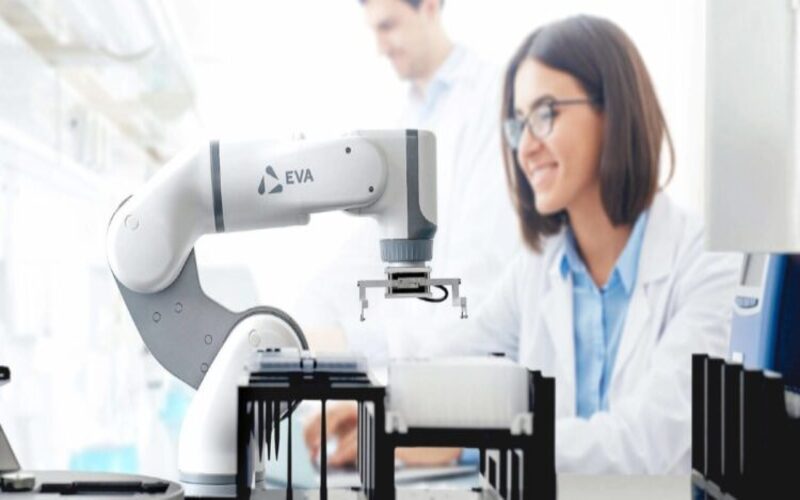The biotech business Automata Technologies, located in London, revealed that it has raised $40 million (about €38.2 million) in a new investment round. Automata Technologies provides robotic automation solutions to life sciences labs.
Following the success of its $50M Series B investment in January 2022, Automata received $40M in funding. The firm has increased its commercialization efforts thanks to this finance, particularly in Europe, the UK, and the US.
Since its latest fundraising round, Automata claims to have grown significantly, with a 150% increase in income and a 12-fold increase in active system hours.
Financial backers of Automata
A.P. Moller Holding, the parent firm of the A.P. Moller Group, joined Dimension in leading the investment. Additionally, current investors Octopus Ventures, Hummingbird, Isomer Capital, Possible Ventures, and Aldea Ventures made contributions.
The contemporary lab is a data factory, needing precise coordination across various lab instruments while juggling many protocol runs, according to Nan Li, co-founder and managing partner of Dimension. Because of this, the sector requires a lab automation system that emphasizes speed, dependability, adaptability, repeatability, and scale.
“Automata’s modular hardware and software LINQ system delivers just that, and we’re thrilled to partner with them to build a category-defining business in this space,” Li furthers.
A.P. Moller Holding’s Chetan Mehta, Head of Growth Equity, continues, “Automata’s solutions help increase throughput, lower cost, and accelerate innovation, allowing its customers to focus on pushing further into cutting-edge medical and life science research.”
Automata seeks to use automation to maximize human potential.
Automata claims it can help scientific organizations overcome problems, including lack of lab space, quick and flexible experimentation requirements, and difficulty hiring and maintaining qualified personnel.
The company’s LINQ automation platform is made to be used by hospitals, pharmaceuticals, biotech, and CRO laboratories, and research organizations.
It offers dynamic protocol creation and supports high throughput processes and laboratories needing frequent workflow modifications.
The LINQ platform from Automata helps labs optimize operations and improve productivity in response to changing scientific requirements by offering adaptive automation solutions.
NHS Trusts like The Royal Marsden NHS Foundation Trust, academic institutions like The Francis Crick Institute, testing laboratories like HSL, CDMOs, and CROs, as well as pharmaceutical and biotech firms like AstraZeneca and bit. Bio is one of Automata’s clients.
What gave rise to Automata?
Architects from Zaha Hadid’s research lab, Mostafa ElSayed and Suryansh Chandra (who left the company in March 2020), first investigated robots for use in architectural engineering. They believed that contemporary automation, not only in their industry but in many others, was overly complicated and inhibited creativity.
They established Automata to enable innovation through simpler automation, bringing together a team of industry specialists to make a real impact. They did this by using their skills in computational research and design.
A Brief Overview of Automata Technologies
Automata, founded in 2015, specializes in streamlining automation in the health sciences industry. With its technologies, scientists can quickly innovate, diagnose, and find new things at a large scale, which frees up more time for analysis and faster turnaround times.
NHS pathology laboratories have used Automata’s technology to alleviate diagnostic backlogs and greatly increase lab capacity, with some labs running 40 automated stations around the clock.
For clients such as NHS Trusts, academic institutions, Contract Development and Manufacturing Organizations (CDMOs), and pharmaceutical corporations, the company claims its Lab Automation platform empowers scientists, speeds the translation of findings, and improves efficiency.
With software for workflow management, proprietary hardware enabling modular configurations and high throughputs, extensive data accessibility throughout experiments, and an OEM-agnostic approach for seamless integration with various labs and equipment, Automata’s LINQ automation platform provides a comprehensive solution for labs.
This platform gives scientists more control, boosts productivity, and encourages flexible lab automation.
At the moment, Automata has operations in Boston, USA, as well as London, UK.
Utilization of capital
The additional funding will enable Automata to grow its workforce and strengthen its US, UK, and EMEA footprint. The firm also seeks to concentrate on chances in the international life sciences sector to strengthen its brand awareness and market presence.
According to the company’s founder and CEO, Mostafa Elsayed, the last two years have been extremely exciting at Automata: “We’ve seen LINQ increase the scale of customer workflows and meaningfully increase their ability to generate high-quality data, accelerating their pace of discovery and experimentation.”
A genuine confirmation of the promise and capabilities of our lab automation platform and the work the team has accomplished is the achievement of fundraising with intriguing and experienced investors in a rather hard financing climate.
“The increase allows us to maintain our attention on our current and planned deployments and continue to create solutions that revolutionize how scientists engage with their facilities. The most significant benefit is that it will hasten our users’ current effect on people’s lives worldwide, continues Elsayed.

